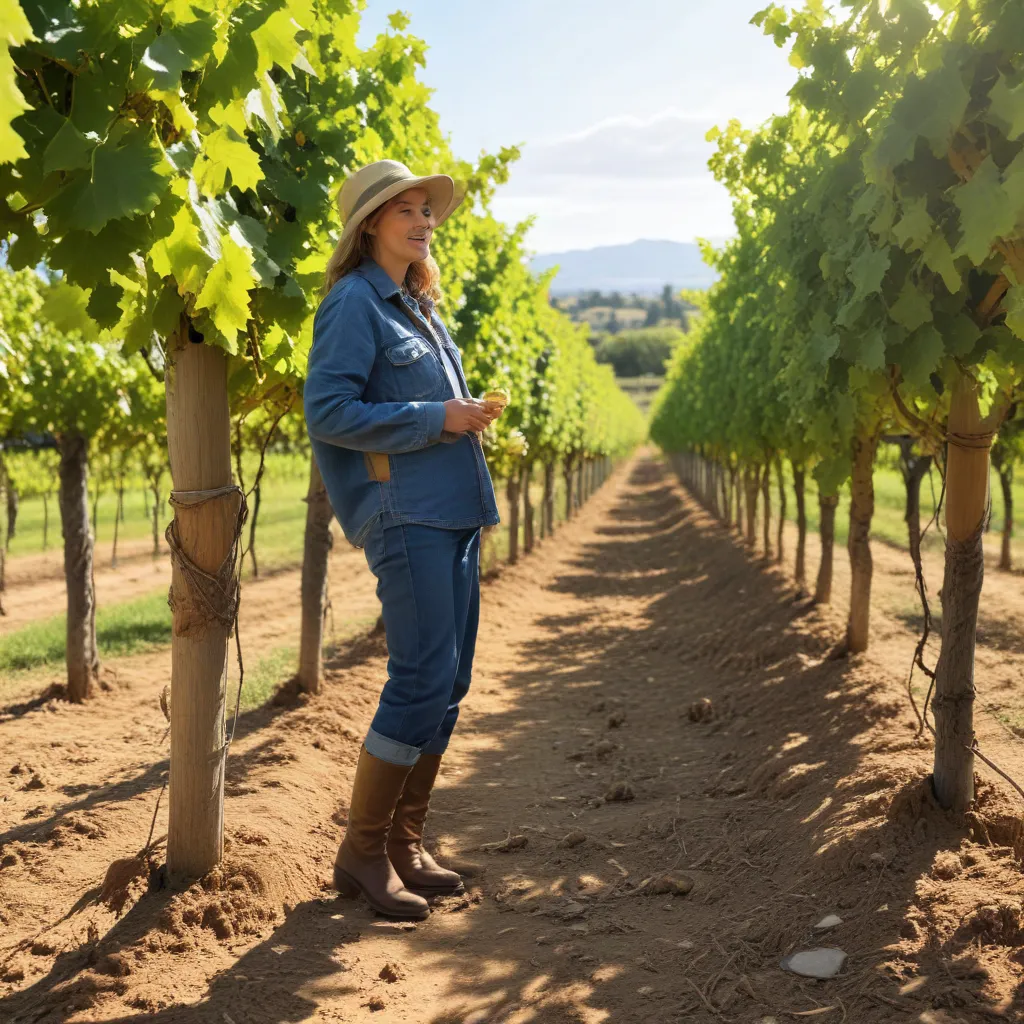
At Wine Garden Inn, we believe that great wine starts with a healthy, thriving environment. That’s why sustainability is at the core of our winemaking philosophy – from the vineyard to the bottle. As stewards of the land, we are committed to employing eco-friendly practices that not only preserve the integrity of our terroir, but also positively impact the surrounding ecosystem and community.
Sustainable Farming Techniques
Our viticulture is rooted in organic and biodynamic principles, which go beyond simply forgoing synthetic pesticides and fertilizers. We view our vineyard as a self-sustaining ecosystem, where the health and biodiversity of the soil is just as crucial as the quality of the grapes.
Organic Viticulture means that we rely on natural, plant-based solutions to manage pests and diseases. Instead of spraying harsh chemicals, we cultivate a diverse array of cover crops to attract beneficial insects and suppress weeds. This not only reduces our carbon footprint, but also results in grapes that are free of synthetic residues, allowing the true flavors of the terroir to shine through.
Taking our sustainable practices a step further, we also employ biodynamic farming techniques. This holistic approach treats the vineyard as a living, interconnected organism, where each element – from the soil to the stars – plays a vital role. By using specialized compost preparations and aligning our vineyard activities with the rhythms of the lunar calendar, we strive to create a self-regulating, thriving environment that requires minimal external inputs.
Our commitment to regenerative agriculture goes even deeper. We view our vineyard not just as a place to grow grapes, but as an opportunity to actively restore the land and enhance biodiversity. Through practices like minimal tillage, cover cropping, and managed grazing, we are able to build healthy, carbon-rich soils that sequester greenhouse gases and support a diverse array of plant and animal life.
Environmentally-Conscious Winemaking
Sustainability doesn’t stop at the vineyard – it’s a philosophy that permeates every aspect of our winemaking process. From water conservation to renewable energy, we’re constantly seeking ways to reduce our environmental impact.
Water is a precious resource, especially in our drought-prone region. That’s why we’ve adopted dry farming techniques, which rely solely on natural rainfall to nourish our vines. By encouraging the roots to grow deep into the soil, we’re able to produce grapes with exceptional concentration and flavor without the need for irrigation.
In the winery, we’ve invested in energy-efficient equipment and alternative power sources to minimize our carbon footprint. Our roof is adorned with a vast array of solar panels, which supply a significant portion of the electricity required for our operations. We’ve also implemented a comprehensive waste reduction and recycling program, ensuring that every resource is used to its full potential.
Ecosystem Preservation
At Wine Garden Inn, we don’t just see our vineyard as a place to grow grapes – it’s a living, breathing ecosystem that we’re honored to steward. That’s why we’ve made it a priority to protect and enhance the biodiversity of our land.
One of the ways we do this is by cultivating a diverse array of native plants throughout our property. These local species not only add to the visual appeal of our grounds, but they also provide vital food and shelter for a wide range of wildlife, from pollinating insects to migratory birds. By creating these natural habitats, we’re able to support the health and resilience of the entire ecosystem.
Healthy soil is the foundation of a thriving vineyard, which is why we devote so much attention to maintaining and improving our soil health. We rely on techniques like cover cropping, minimal tillage, and composting to nourish the soil’s microbial life and prevent erosion. This not only yields better-quality grapes, but it also enhances the soil’s ability to sequester carbon, mitigating our overall environmental impact.
Carbon Footprint Reduction
Reducing our carbon footprint is a crucial component of our sustainability efforts. From energy-efficient operations to sustainable packaging, we’re continuously exploring new ways to minimize our greenhouse gas emissions and support a healthier planet.
One of the key ways we’ve tackled this challenge is by installing solar panels across our winery and vineyard facilities. This renewable energy source not only powers our operations, but it also allows us to feed excess electricity back into the grid, offsetting our carbon footprint even further.
We’ve also made a concerted effort to optimize our grape transportation methods. By using lighter-weight glass bottles and exploring alternative packaging options like cans and boxes, we’re able to reduce the overall weight and carbon emissions associated with shipping our wines. Additionally, we prioritize local and regional distribution channels whenever possible, minimizing the distance our products travel.
Community Engagement
Sustainability is not just about the environment – it’s also about fostering strong, vibrant communities. At Wine Garden Inn, we believe in the power of collaboration and education to drive positive change.
That’s why we regularly host sustainable winemaking workshops and eco-tourism experiences for our guests. These immersive events allow visitors to learn about our sustainable practices firsthand, while also connecting with like-minded individuals who share our passion for environmental stewardship.
But our commitment to the community extends beyond our own property. We actively partner with local environmental organizations to support their conservation efforts and advocate for policies that protect our shared natural resources. By working together, we can amplify our impact and ensure a brighter, more sustainable future for generations to come.
At the end of the day, our sustainable winemaking practices are not just about producing exceptional wines – they’re about doing our part to safeguard the planet and the communities we serve. By embracing innovative, eco-friendly techniques and fostering a culture of environmental stewardship, we’re confident that we can continue to create world-class wines while leaving a positive legacy for the years to come.
